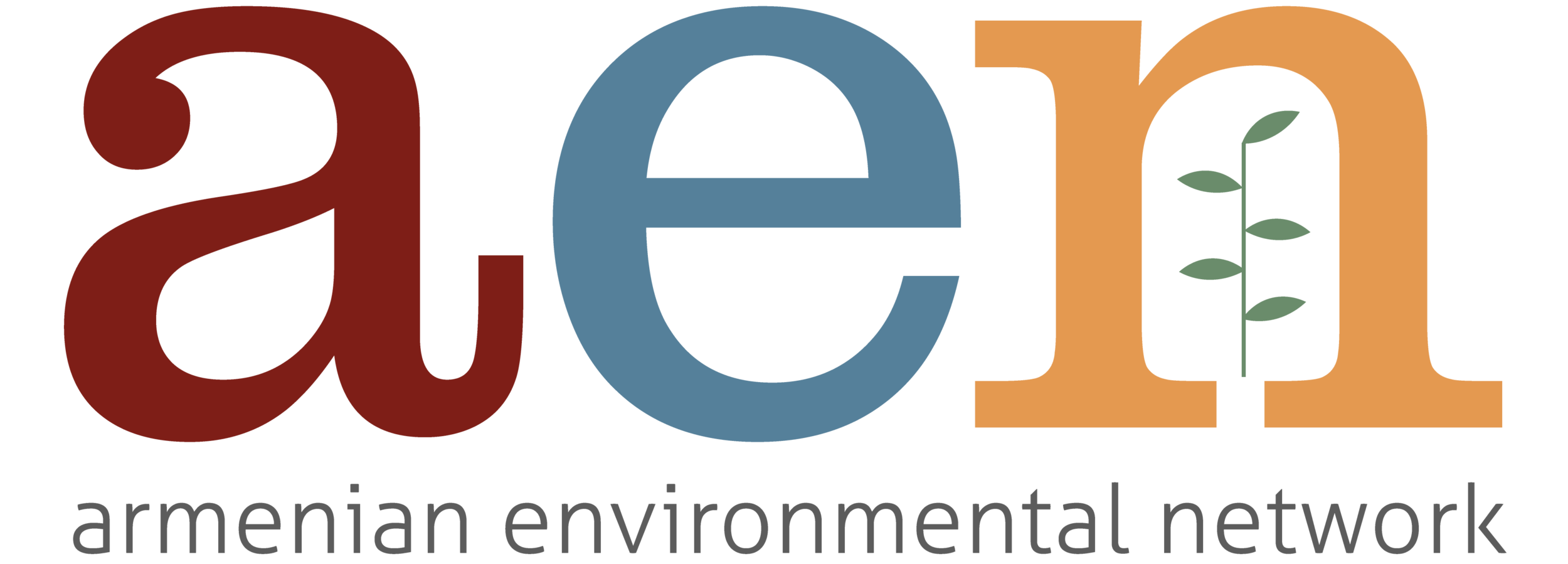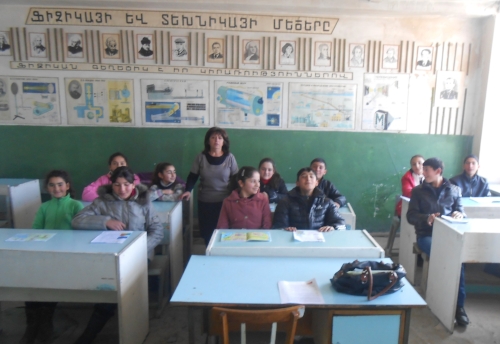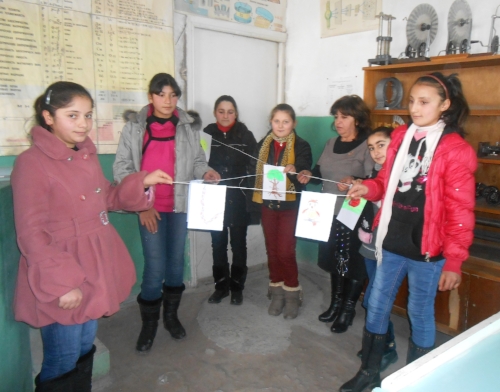Inspiring Stories: Marine Harutyunyan, a teacher from Tsovak, Vardenis Sub-region
Tsovak is a small village that has set its boundaries very, very close to Lake Sevan. Armenia is landlocked, but in ancient times Armenians referred to Lake Sevan as the Geghama Sea (after the Geghama Mountains surrounding the lake). Lake Sevan was honored with the title of “sea” due its largeness. This is how Tsovak got its name: tsovak means ”small sea”.
Living far from Yerevan (Tsovak is in the Vardenis sub-region of Gegharqunik Marz), people in Tsovak are very proud of their environment – the Geghama mountain chain, Lake Sevan and the surrounding forests. They also claim, with an inviting smile, that Lake Sevan is more beautiful from their side.
Having rich and beautiful environment also creates needs for its protection. In addition to water pollution and deforestation that threaten Tsovak, there is still another big environmental problem – improper waste management. Tsovak, like many other cities and villages in Armenia, doesn’t have a sanitary landfill and so trash is accumulated in an informal dump near the road.
This is why the Armenian Environmental Network (AEN) has highlighted the importance of environmental education in the Vardenis sub-region (not only Tsovak, but in 16 other villages as well). In cooperation with the Graduate Association of Yerevan State Linguistic University from V. Brusov (GA YSLU) and Ayrudzi NGO, AEN is currently implementing its “Vardenis Environmental Education Initiative,” which is funded by the Royal Embassy of Norway in Moscow. Within the scope of this project, AEN is sharing its original educational materials on environmental issues, focusing on waste management.
Marine Harutyunyan is one of the teachers participating in the project. She teaches the project materials to her 7th grade class, the target group of the project, with 33 students. Here are some thoughts Mrs. Harutyunyan shared with us:
“Environmental education is of high importance for our village. I think one of the biggest problems we face is improper waste management. People mainly burn or bury their trash, which can have disastrous effects on environmental and public health.
I have conducted the lesson plans proposed at the 1st ToT (Training of Teachers) and can state that the materials are constructed very effectively; the topics add to each other by logically leading students through different environmental issues. The pupils are very enthusiastic about the topics and they are ready to share their knowledge learned in class with their parents and friends. The result is obvious. I am sure the students will apply whatever they learn from these lessons as they are very excited. If you have seen their enthusiasm, you would certainly agree with me (she exclaims with delight).
Due to the methodology that the material is developed with, even the most passive students became more active than the normally active ones. Very often the active students learn to receive good marks, but in this case it was just for the sake of being informed in order to take necessary measures for protecting their environment. The students are so interested in the topics that sometimes I am afraid that if I change the topic of the lesson they won’t listen to me any more; the dose of these materials is extremely high (she laughs while stating this). I also apply this method [the Socratic Method introduced to the teachers through AEN’s educational materials] in other subjects that I teach and try to share the topics and the most important factors connected with them (at least for 5 minutes) in other classes, not the 7th grade; as I have witnessed the effectiveness of the educational material and would like other students to also be involved.
In my opinion having these lessons once a week is not enough; it would be better to conduct them more often. It would ensure a sustainable impact and students would apply more from whatever they learn.”
We want to thank Marine Harutyunyan for her participation in the project and readiness to conduct the lessons as provided by AEN’s educational materials in her class. Success at school highly depends on teachers, and if we didn’t have Mrs. Harutyunyan’s great will and enthusiasm, we wouldn’t have such results. May the fruits of this success story be tasted by every Tsovaktsi and help them develop more responsible and accountable attitudes towards their environment.




